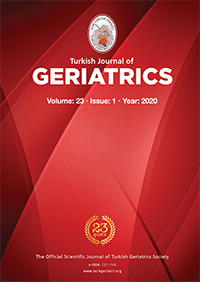Materials and Methods: In this study, medical records of patients aged ?90 years admitted to intensive care unit, between January 2015 and January 2018, were retrospectively reviewed. Demographic data, reason for admission (medical or surgical), Acute Physical and Chronic Health Evaluation II (APACHE II) score, need for and duration of mechanical ventilation, need for inotropic agents, duration of intensive care unit stay, and mortality rate were recorded.
Results: A total of 107 nonagenarians were evaluated. The mean age of the patients was 92.65 ± 2.36 years, and 72 of them were women. The mean score of APHACHE II was 23.6 ± 7.2. Most patients were admitted due to medical reasons (n = 82, 76.63%). Sixty-four of the medical patients, and four of the surgical patients had died in the intensive care unit (n = 68, 63.55%). APACHE II score, need for and the duration of mechanical ventilation, need for inotropic agents, the duration of intensive care unit stay, and the mortality rate were higher in medical patients than in surgical patients.
Conclusions: The mortality rates of the medical patients were high; nevertheless, we believe that surgical patients more benefit from intensive care unit follow-up.
Keywords : Aged; Patient; Intensive Care Unit; Mortality
